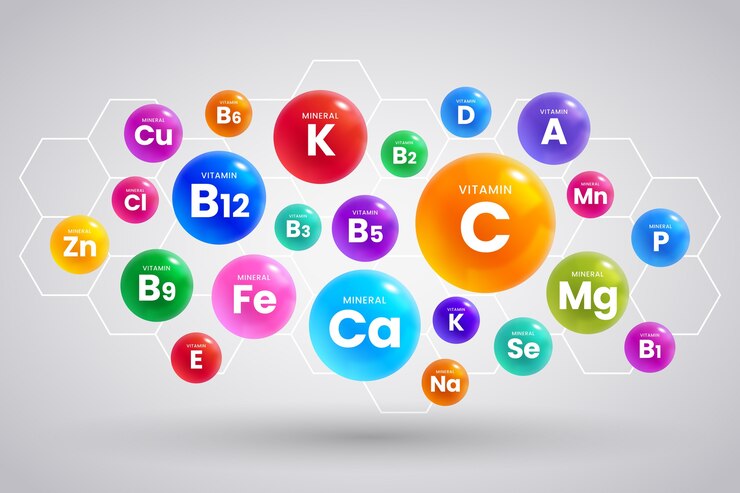
Around the world, millions of children under five experience vitamin deficiencies, which can lead to slower growth, underweight conditions, and more severe health challenges. One important group of nutrients vital for children’s growth and development is the vitamin B complex. These eight types of B vitamins support metabolism, affect energy levels, and even contribute to proper height, weight, and blood health.
Here’s a simplified guide to understanding the major health benefits of B vitamins for kids and how you can incorporate them into their diets.
1. Supports Red Blood Cell Production
Vitamins B9 (folate) and B12 (cobalamin) are crucial for creating red blood cells (RBCs). RBCs contain hemoglobin, which delivers oxygen throughout the body and removes carbon dioxide (CO2) via the lungs. Since the body cannot produce B9 and B12, kids must get them through food or supplements. A deficiency can result in anemia, which may cause fatigue, pale skin, and developmental delays in children. In more serious cases, anemia can lead to heart problems.
Foods rich in B9 include nuts, beans, peas, leafy greens, and beef liver, while B12 can be found in dairy products, eggs, fish, poultry, and meat. Fortified cereals and juices are also great options. If allergies or preferences are a concern, consider non-dairy supplements or liquid vitamins for easier consumption.
2. Converts Iron into Hemoglobin
Vitamin B6 (pyridoxine) helps your child’s body turn iron into hemoglobin. A lack of this vitamin can also lead to anemia. To prevent this, include foods like fortified cereals, leafy greens, fruits, nuts, legumes, and animal products such as fish, meat, and poultry in their diet. Your pediatrician can also recommend suitable B6 supplements if needed.
3. Boosts Metabolism
Vitamins B1, B2, B3, B5, and B7 all play a role in transforming food and drinks into energy, ensuring kids have enough fuel to grow, play, and learn. Here’s how each vitamin contributes to metabolism:
– Vitamin B1 (Thiamine): Essential for converting glucose into energy, which powers the brain and red blood cells. A deficiency can cause fatigue and even interfere with brain function.
– Vitamin B2 (Riboflavin): Helps break down carbs, fats, and proteins into energy stored in muscles. Since the body stores very little riboflavin, a consistent daily intake is crucial.
– Vitamin B3 (Niacin): Supports cellular metabolism, helping cells grow and divide. Without enough niacin, kids may feel unusually tired or lethargic.
– Vitamin B5 (Pantothenic Acid): Vital for breaking down energy from food and helping other vitamins, like B2, do their jobs effectively.
– Vitamin B7 (Biotin): Assists in fat and amino acid metabolism while supporting cell growth and energy storage.
4. Maintains Nervous System Health
B vitamins like B1, B6, and B12 are essential for a healthy nervous system. They help protect nerve cells, and in some cases, aid in nerve repair. Without sufficient levels of these vitamins, children may experience developmental delays, mobility issues, or trouble with coordination and reflexes.
5. Promotes Healthy Skin and Hair
Vitamin B6 helps keep skin healthy, preventing dryness and cracking that can cause discomfort. Meanwhile, B3 helps lock in moisture, which is especially important for children who are active and prone to sweating. Together, these vitamins support both skin hydration and the healthy growth of hair.
Make B Vitamins a Part of Your Child’s Diet
It’s clear that all eight types of vitamin B are crucial for kids’ overall health. Even a small deficiency can impact their energy levels or red blood cell production. To ensure they get what they need, enrich their meals with fruits, vegetables, dairy, and lean protein. You can also consult a doctor to find safe, effective supplements if needed.
By incorporating vitamin B-rich foods into their diet now, you’re helping your kids grow healthier and stronger for years to come.